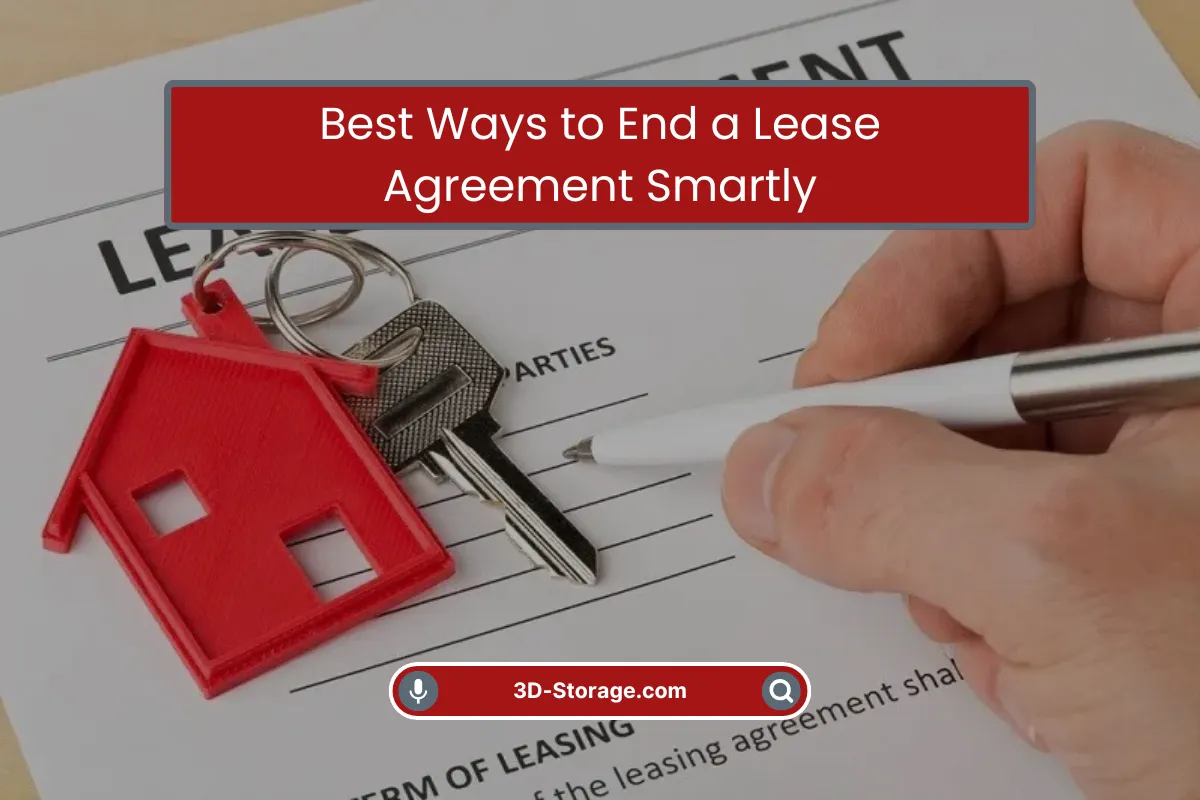So you’re stuck in a lease and need to get out. Maybe your boyfriend turned out to be a complete disaster, or you got laid off, or your dream job just called from three states away. Whatever happened, you’re probably freaking out right about now.
I get it. I’ve been there. Actually broke my lease twice – once because of a nightmare roommate situation, and once when my company relocated me with two weeks’ notice. The first time, I did everything wrong, and it cost me big time. The second time, I knew what I was doing.
Here’s what I wish someone had told me the first time around.
Stop Panicking and Start Reading
First thing – dig out that lease you signed. Yeah, I know it’s boring as hell, but there’s probably stuff in there you forgot about. When I broke my first lease, I didn’t even know there was an early termination clause until my friend pointed it out. Turned out I could get out for just two months’ rent instead of owing the whole year.
Look for anything about:
- Early termination (sometimes called “lease break” fees).
- Military clauses (even civilians sometimes get job relocation protection).
- Subletting rules.
- What happens if you just bail?
Most leases have some kind of out; landlords know people’s lives change. They’d rather have a clear process than chase you down later.
Your Landlord Isn’t Your Enemy
This was my biggest mistake the first time. I was so scared of talking to my landlord that I avoided him for weeks. Meanwhile, he’s thinking I’m some deadbeat who’s planning to skip town.
When I finally called him, it turned out he was actually pretty reasonable. He’d rather work with me than have an empty apartment eating into his profits. We worked out a deal where I found my own replacement tenant and only paid a one-month penalty instead of three.
Here’s the thing – approach your landlord like you’re solving a business problem together, not like you’re asking for a favor. Something like:
“Hey, I’ve got a situation where I need to move out early. I know this puts you in a tough spot, too, so let’s figure out the best way to handle this.”
Don’t grovel, but don’t be a jerk either.
Know When You Can Just Walk Away
There are actually times when you can legally break your lease without owing a dime. Most people don’t know about these:
- If you’re in the military and get orders, you’re covered. Period. Just give 30 days’ notice with a copy of your orders.
- If your place is basically unlivable – like no heat in winter, major water damage, roach infestations that won’t quit – you might be able to walk. But document everything. Take pictures, keep records of complaints.
- If you’re dealing with domestic violence, most states let you out early. You’ll need a restraining order or police report, but your safety comes first.
- If your landlord keeps barging in without proper notice, that’s a violation of your privacy rights in most places.
The keyword here is “document.” Take photos, save texts, keep records. Without proof, it’s just your word against theirs.
Finding Someone to Take Over
This is honestly your best bet most of the time. But you’ve got to do it smart.
I learned this the hard way when I found what I thought was the perfect replacement tenant. Turns out the guy had been evicted twice and lied on his application. My landlord rejected him, obviously, and I was back to square one.
Now I screen people like I’m the landlord:
- Credit check (you can get these online for like $20).
- References from previous landlords.
- Proof of income (3x the rent is standard).
- Actually meet them in person.
Yeah, it’s work, but it’s worth it to get out clean.
Also, figure out if your landlord wants a sublet or an assignment. Big difference:
- Sublet = you’re still on the hook if they trash the place or skip out
- Assignment = they take over completely, and you’re done
Most landlords prefer assignment because it’s cleaner for everyone.
Timing Is Everything
I broke my first lease in January in Minnesota. Terrible idea. Nobody wants to move apartments when it’s -20 outside. Took three months to find someone.
The second time, I timed it for April when people were looking for summer places. Found a replacement in two weeks.
Best times to break a lease:
- Spring through early fall.
- Beginning of the month.
- When you’ve got at least 60 days left.
Worst times:
- Dead of winter (unless you’re somewhere warm).
- Right before the holidays.
- Last month or two of your lease (not worth it for landlords to re-rent).
The Money Talk
Everything’s negotiable. I mean everything.
Maybe you can’t afford the full break fee, but you could forfeit your security deposit and pay half. Or maybe you’ll pay the full fee but in installments. Or you’ll handle all the showing appointments to save your landlord time.
One trick that worked for me: I offered to pay for professional cleaning and any minor repairs needed to get the place rent-ready. Cost me maybe $200, but saved me $2,000 in break fees.
Just make sure whatever you agree to is in writing. Landlords are people too – they forget stuff or change their minds.
Don’t Screw Yourself Over
Some things that seem smart but aren’t:
- Just moving out and hoping for the best. This is how you end up owing thousands and trashing your credit. Don’t do it.
- Trying to make the place “unlivable” so you can break the lease. This is fraud, and you’ll get caught. Plus you’ll probably owe damages on top of everything else.
- Assuming you have no options. Even if your lease looks iron-clad, most landlords will negotiate rather than deal with an empty unit.
- Waiting until the last second. The earlier you start this process, the more options you have.
What About All Your Stuff?
One thing that made my lease break way more stressful than it needed to be was trying to figure out what to do with all my furniture and belongings while I was between places.
If you’re moving to a smaller place or staying with family temporarily, you might need somewhere to put your stuff. That’s where we come in – our storage units have helped tons of people through these exact situations. Instead of rushing into the first apartment you find just because it fits your couch, you can take your time and make the right choice.
Real Talk About Money
Breaking a lease is going to cost you something. Even if you do everything right, you’re probably looking at losing your security deposit at a minimum. Budget for it and don’t let anyone tell you it should be free.
But here’s the thing – doing it right usually costs way less than people think. I thought I was going to owe $8,000 when I broke my second lease. Ended up paying $1,200 and got a good reference for my next place.
The key is starting early and being honest with everyone involved. Your landlord wants to minimize their losses just like you do.
Protecting Your Future
Even if you break your lease “nicely,” you want to make sure it doesn’t come back to bite you:
- Pay everything you owe quickly. Don’t give them any reason to send you to collections or report bad stuff to credit agencies.
- Get a reference letter before you leave. If you’re parting on good terms, ask your landlord to write something positive about your tenancy.
- Take photos when you move out. Lots of them. You want proof of how you left the place in case they try to stick you with bogus damage charges later.
- Follow up on your deposit. Don’t just assume they’ll send it back automatically.
The Bottom Line
Look, breaking a lease sucks no matter how you do it. But it doesn’t have to ruin your finances or your future rental prospects if you handle it right.
The biggest mistake people make is panicking and either doing nothing or doing something stupid. Treat this like the business transaction it is. Be professional, be honest, and be prepared to pay something to make it go away cleanly.
Your landlord has dealt with this before. They have processes in place. Work with them, not against them, and you’ll both get through this with minimal drama.
And hey, sometimes life throws you curveballs. That’s not a character flaw – that’s just being human. Handle it responsibly and move on to whatever’s next.








0 Comments